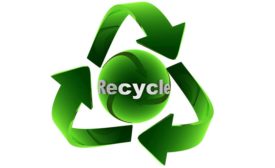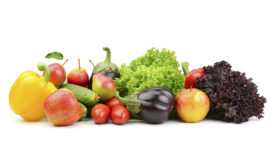Home » waste reduction
Articles Tagged with ''waste reduction''
Study: Frozen food brands should better educate UK consumers on benefits of frozen foods to reduce waste
Just 10% of consumers associate frozen food as being “healthy” compared to 45% for fresh food, according to the survey.
April 26, 2018
CHEP develops reverse logistics, waste diversion solution for Walmart Canada
Since the recycling of wooden waste began, more than 2,000 tons of plant racks have been transported to recycling facilities.
April 12, 2018
Report shows ways to help solve North America's food loss, waste problem
The report estimates that 168 million tons of food are wasted in North America each year.
April 4, 2018
Report outlines ways to help solve North America's food loss, waste problem
To reduce greenhouse gas emissions associated with food loss and waste, the report lists source reduction, food rescue and recovery as having the greatest potentials for savings on GHG and as preferable to recycling.
March 27, 2018
McDonald’s becomes first restaurant to set approved science-based target to reduce greenhouse gas emissions
Through these actions, McDonald’s expects to prevent 150 million metric tons of greenhouse gas emissions from being released into the atmosphere by 2030.
March 20, 2018
Farmstead launches AI platform to help food companies reduce waste
Companies that will benefit from FreshAI include supermarkets, cafeterias, food production facilities, restaurants, quick-service food chains and convenience stores seeking to quickly improve profit margins and achieve waste reduction goals.
March 20, 2018
ReFED partners with Food Waste Reduction Alliance, launches retail food waste action guide
The guide presents a set of proven prevention, recovery and recycling solutions to help the industry prioritize and accelerate waste reduction activities.
January 25, 2018
Elevate your expertise in refrigerated and frozen foods with unparalleled insights and connections.
Get the latest industry updates tailored your way.
JOIN TODAY!Copyright ©2024. All Rights Reserved BNP Media.
Design, CMS, Hosting & Web Development :: ePublishing






